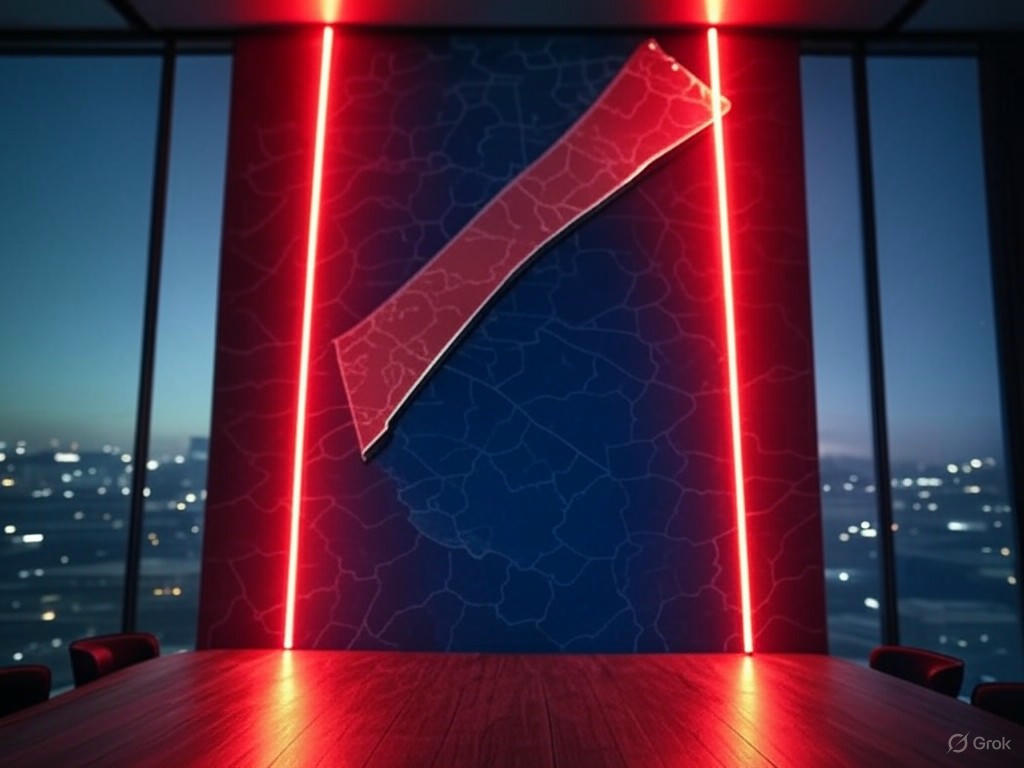
Gaza Offensive Expansion Approved by Israeli Cabinet
The Gaza Offensive Expansion: What You Need to Know
Israel’s security cabinet has greenlit a bold Gaza offensive expansion, signaling a dramatic shift in the ongoing conflict. This move involves a plan to recapture the entire Gaza Strip, with officials describing it as a “conquest” strategy. Made official on May 5, 2025, this escalation comes after more than a year and a half of devastation, raising questions about what this means for regional stability.
The Israeli Defense Forces (IDF) are mobilizing tens of thousands of reservists to ramp up operations across Gaza. Have you ever wondered how such decisions ripple through everyday life? IDF Chief Eyal Zamir emphasized that this Gaza offensive expansion aims to intensify pressure, focusing on returning Israeli hostages and dismantling Hamas infrastructure completely.
As reservists receive their call-ups, the military plans to target Hamas’s networks both above and below ground. This step isn’t just about immediate action; it’s a broader strategy that could reshape the dynamics of the conflict, making it essential to understand the human stories behind the headlines.
Timing Behind the Gaza Offensive Expansion
While the cabinet has approved this Gaza offensive expansion, reports from Israeli media indicate that full-scale operations might wait until after U.S. President Donald Trump’s upcoming visit. This delay hints at the delicate balance of diplomacy in play. Prime Minister Benjamin Netanyahu has paused his own international travel, including a trip to Azerbaijan, to focus on these developments and the intense security demands.
The reservist call-up adds strain on Israel’s workforce, particularly in tech and other sectors already stretched thin from prior mobilizations. Imagine juggling a high-stakes job while facing a sudden military duty—it’s a reality for many families right now. This Gaza offensive expansion underscores how political timing can amplify economic challenges, potentially affecting businesses and communities for months.
Humanitarian Stakes of the Gaza Expansion
The Gaza offensive expansion has sparked widespread humanitarian alarms, with Gaza already ravaged since the conflict began in October 2023. Over 51,000 Palestinians have lost their lives, and much of the territory lies in ruins, according to local health officials. Rafah, sheltering over a million displaced people, is a prime concern as it could become a focal point for intensified fighting.
Organizations on the ground warn that a major assault here might lead to catastrophic civilian casualties, given the overcrowding and scarce resources. What if you were in that situation, with nowhere to turn? Aid groups are pleading for restraint, fearing a humanitarian crisis that could worsen food and water shortages even further.
Internationally, governments are urging Israel to reconsider, labeling a potential invasion as a “bloodbath.” This Gaza offensive expansion isn’t just a military move—it’s a test of global empathy and response.
Exploring Rafah’s Role in the Offensive
Rafah’s dense population makes it a high-risk area in any Gaza offensive expansion. Humanitarian experts point to the lack of escape routes, turning the city into a potential trap. Could diplomatic efforts still prevent the worst outcomes here?
Hostages and the Gaza Offensive Expansion Talks
A key driver of this Gaza offensive expansion is the push to free Israeli hostages held since the October 7, 2023 attacks. So far, 192 have been released through negotiations and operations, but many remain captive. Critics question if military escalation will truly help, as peace talks in Cairo have hit roadblocks.
Hamas officials insist on a full end to operations and Israeli withdrawal, while Netanyahu’s government demands to proceed with the offensive. This standoff raises a bigger question: Does pressure lead to resolution, or does it prolong the pain? For families waiting for loved ones, the uncertainty is heartbreaking.
Experts suggest exploring hybrid approaches, like combining military actions with sustained dialogue. If you’re following this story, think about how past conflicts have shown that timing is everything in negotiations.
Regional Risks from the Gaza Offensive Escalation
The Gaza offensive expansion has already drawn reactions from groups like the Houthi movement in Yemen, who threaten air blockades and strikes on Israeli targets. A recent missile near Ben Gurion Airport slipped through defenses, highlighting growing threats. Netanyahu has vowed a strong response, tying it back to Iran’s influence.
This could widen the conflict, pulling in other regional players and complicating security. Ever consider how one decision can spark a chain reaction? The Gaza offensive escalation serves as a reminder of the interconnected risks in the Middle East.
With Iran’s backing of various factions, the situation demands vigilant monitoring. Strategies for de-escalation might include stronger international alliances, offering a path to stability.
Implications of Gaza’s Military Build-Up
As part of the Gaza offensive escalation, Israel aims to destroy Hamas’s infrastructure comprehensively. This includes targeting tunnels and other hidden assets, a tactic that could define future operations.
Strategic Goals of the Gaza Offensive Expansion
Beyond hostages, the Gaza offensive expansion targets a full takeover of the territory and the eradication of Hamas. IDF plans involve ground operations in previously untouched areas, backed by the massive reservist mobilization. This approach signals a long-term commitment to reshaping security in the region.
Zamir’s statements outline a thorough strategy, from surface strikes to underground demolitions. If you’ve studied military history, this echoes past campaigns where comprehensive planning was key to success. Yet, it also poses ethical questions about civilian impacts and sustainable outcomes.
Experts recommend balancing force with reconstruction plans to avoid endless cycles of violence. What steps could ensure that this offensive leads to lasting peace rather than more unrest?
Domestic Politics and the Gaza Offensive
Netanyahu faces backlash at home over the Gaza offensive expansion, with critics from all sides questioning his leadership. Hawks want more aggression, while doves push for diplomacy, creating a tense political landscape. His coalition, including far-right parties, likely influenced this decision as a show of strength.
The timing, ahead of Trump’s visit, might be a bid for U.S. support, given their past alliance. Imagine navigating public opinion while making high-stakes choices—it’s a challenge every leader faces. This expansion could either solidify Netanyahu’s position or fuel more division.
To build broader consensus, incorporating public feedback through forums might help. How can domestic voices shape international policies more effectively?
Roots of the Current Gaza Offensive
The Gaza offensive expansion stems from the October 7, 2023 attacks, where Hamas militants killed around 1,200 in Israel and took hostages. Israel’s response has been one of the most intense in modern history, lasting over 18 months with massive destruction. This cycle of violence highlights deep-rooted grievances on both sides.
Previous ceasefires offered brief relief but failed to resolve core issues, like Hamas’s demands for withdrawal. A brief anecdote: Think of neighborhoods once vibrant, now in ruins, and the human toll that endures. Understanding this history is crucial to grasping why the offensive feels like a turning point.
Learning from past mistakes could guide better strategies, such as investing in dialogue early. Have you ever reflected on how historical events shape today’s decisions?
Future Scenarios from the Gaza Offensive Expansion
As Israel moves forward with the Gaza offensive expansion, the risks include prolonged fighting and regional spillover. Rafah’s civilians face the greatest immediate danger, with aid groups warning of dire conditions. This phase could redefine the conflict’s trajectory, for better or worse.
Opinions vary on whether military pressure or talks will free the hostages, but one thing’s clear: Humanitarian aid must ramp up. Here’s a tip—if you’re passionate about global issues, supporting organizations on the ground can make a real difference. The international community remains watchful, hoping for de-escalation.
In the end, the choices made now could lead to rebuilding or further instability. What are your thoughts on finding a balanced path forward?
As we wrap up, I encourage you to share your perspectives in the comments below—let’s discuss how this Gaza offensive expansion might evolve. If you’re interested in more on Middle East dynamics, check out our related posts. Together, we can foster informed conversations and support peaceful resolutions.
References
- France24. “Israel cabinet approves ‘conquest’ plan to recapture all Gaza.” Link
- The Independent. “Israel approves Gaza war expansion with reservists call-up.” Link
- Other sources consulted include various reports, but for brevity, key ones are referenced above.
Gaza offensive expansion, Israeli cabinet approval, military operations in Gaza, Hamas conflict, Israeli hostages, Netanyahu strategy, reservists mobilization, humanitarian crisis in Gaza, regional escalation, international reactions






